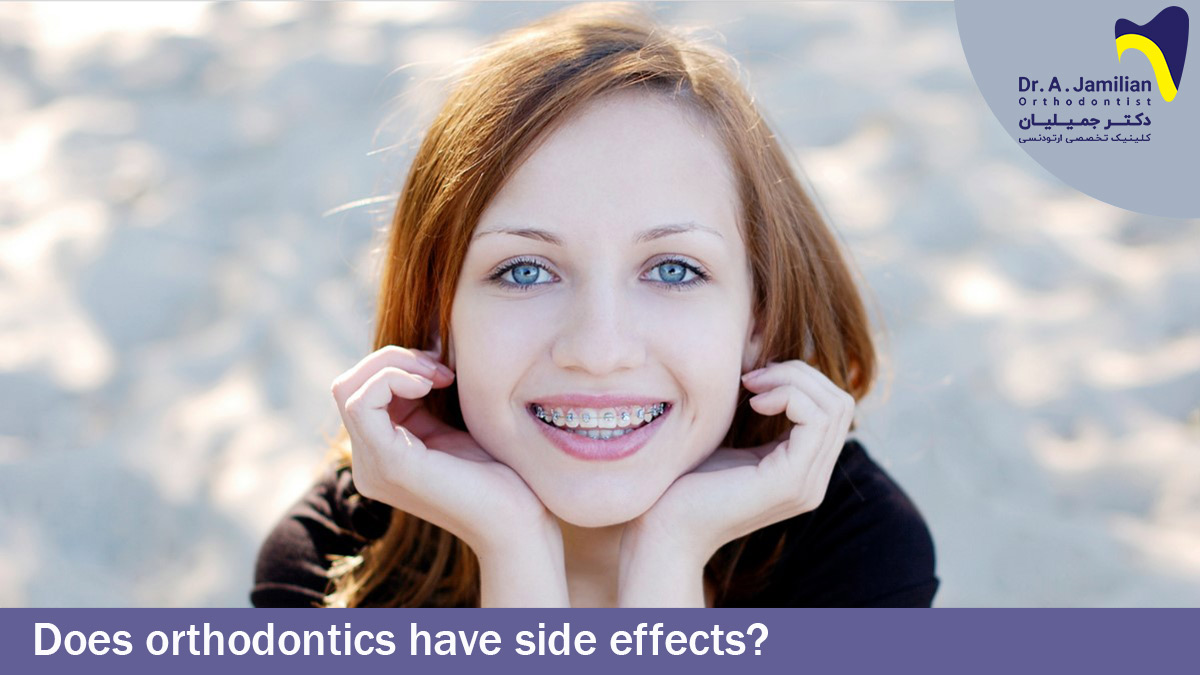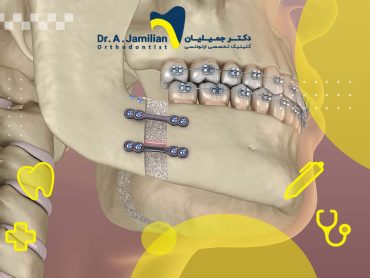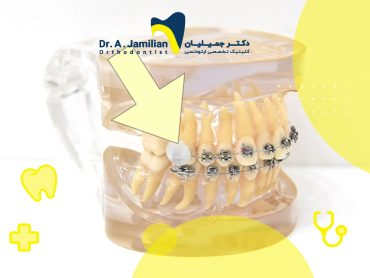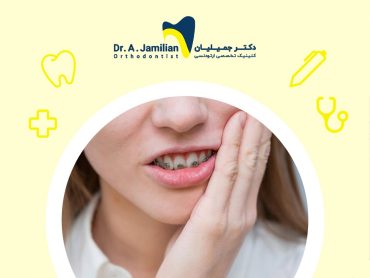The term orthodontics is derived from two Latin words, “ortho” meaning right, and the derivative “odos,” meaning tooth. It refers to a method that intends to “right” and arrange the teeth that have become crowded due to various factors, such as maxillofacial disorders.
Maxillofacial disorders set the stage for problems such as an undesirable appearance and smile and various side effects, which reduce the patient’s self-confidence and damage their health. Dentists often undergo special orthodontic training to be allowed to perform orthodontic therapy. A skilled orthodontist is one who treats orthodontic patients without any side effects and bestows beauty and health upon them.
Sometimes, orthodontic candidates ask whether orthodontics has side effects or problems. You should know that these disorders are treated by orthodontics, which in itself has no side effects. The only side effects is caused by patients who fall short in dental and oral hygiene and don’t follow the orthodontist’s suggestions.
The Goals of Orthodontics
Orthodontics is intended to order the maxillary and mandibular teeth as well as both jaws. Orthodontic treatment is free of side effects and problems. The other two important goals of orthodontics are as follows:
- In order to improve and ease mastication, orthodontics is intended to arrange the teeth such that they have adequate and normal overlap.
- Its other goal is to help the correct, slow and harmless movement of teeth, so their positioning is improved in addition to not harming the teeth.
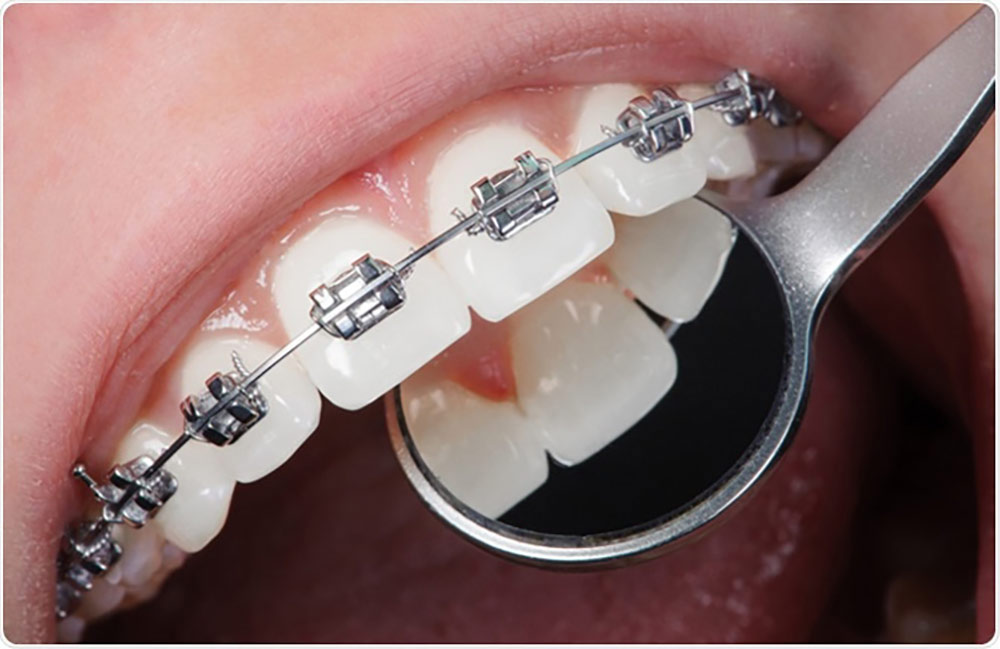
What are the side effects and problems of orthodontics?
As stated previously, orthodontics itself doesn’t have any particular side effects and the person’s neglect is the factor that causes side effects and problems.
Orthodontic therapy is among treatments intended for aesthetic improvement, improved dental function, and preventing decay and gingival recession. Although this treatment has significant benefits, if individuals don’t take the necessary care, they will suffer from certain problems.
Examples of the side effects and problems of orthodontics
Lack of care and observance of oral and dental hygiene by individuals as well as not following the orthodontists’ suggestion causes problems, including the following. The side effects and problems of orthodontics are easily preventable by adhering to the orthodontist’s suggestions. Along with that, patient’s should observe oral and dental hygiene during orthodontics. Bacteria production is massively increased during orthodontics, thus requiring more care from the patient.
- Scarring and Wounds
The side effects and problems of orthodontics in the case of using metal braces include small oral wounds. If metal and orthodontics braces are taken care of and not damaged, they won’t damage the mouth’s internal wall.
- Tooth Decay and Gum Disease
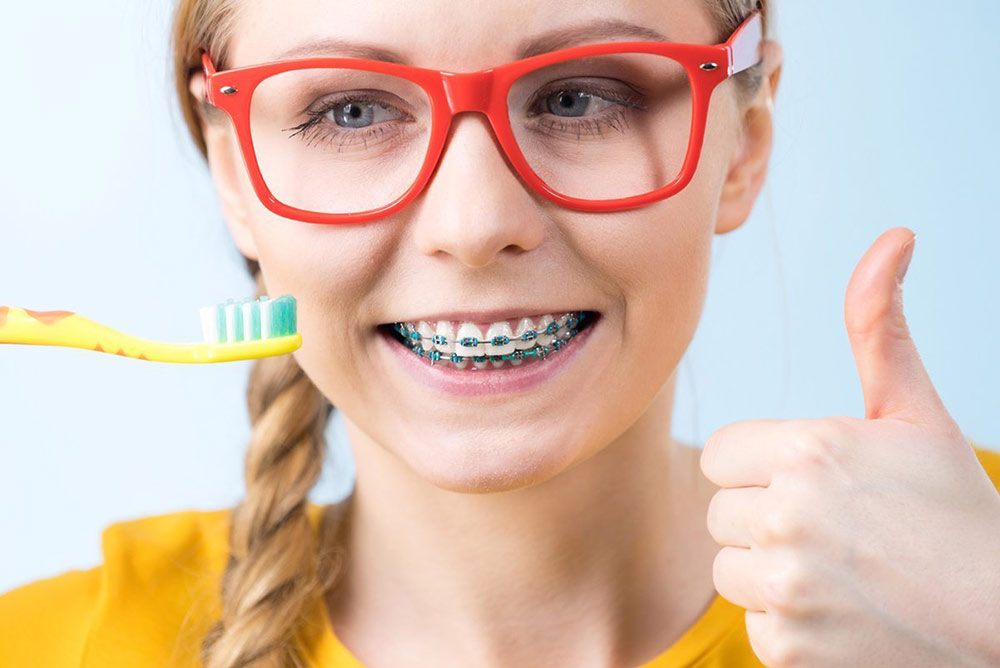
The other side effects and problems of orthodontics caused by the presence of orthodontic braces is food getting stuck between them, which intensifies oral bacterial growth and causes tooth decay and gum recession. These problems occur when individuals don’t observe oral and dental hygiene and don’t take matters such as toothbrushes and orthodontic floss.
- The Retreatment Risk of Orthodontic Treatment
The retreatment risk of these disorders after treatment is among the side effects and problems of orthodontics that make many unwilling to undergo this treatment. It’s worth mentioning that the advancement period’s treatments will not retreat at the end of this period. Make sure to visit the best orthodontist available to begin orthodontic treatment. This will provide you with the best diagnosis and treatment, and your orthodontic treatment will not retreat.
- Root Resorption
Patient’s who treat their oral disorders with orthodontic therapy is have a probability of root resorption at about 3 to 5%. Tooth movements during the treatment occur due to the bone loss mechanism and its reconstruction. At the same time, many small parts of the root are broken and reconstructed. These side effects and problems with orthodontics call for more attention from patients with a history of asthma or strikes. An experienced and skilled orthodontist is familiar with the correct tooth movement timing, and following this important point will prevent root damage and tooth resorption.
- Total Treatment Time:
Occasionally, the treatment time may get shorter or longer than what was predicted. Orthodontic treatment takes 18 to 24 months in most cases. Factors that prolong the treatment are as follows:
- The orthodontist’s considerations during the treatment plan
- The individual’s disease background
- The patient’s non-cooperation in following the orthodontist’s orders
These points will negatively impact the treatment quality.
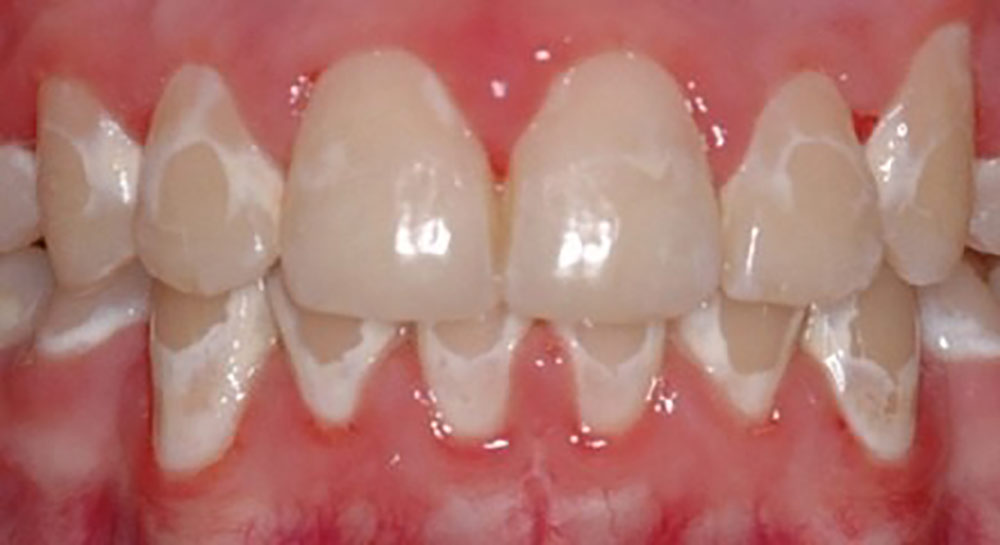
These problems occur due to the patient’s neglect of dental and oral hygiene as well as the orthodontist’s orders and suggestions. The other factors that are mistaken for orthodontic side effects and problems are as follows:
- Enamel damage
- Allergic responses
- Periodontal gum problems
These side effects and problems can be prevented by observing the necessary criteria as well as hygiene. As shown in the image above, the bracketed enamel remains undamaged and the areas and points between brackets have plaques due to neglecting hygiene.
Fortunately, this problem can be resolved through dental scaling after removing the orthodontic bracket.
Download the Tutorial file of Side Effects of Orthodontic Treatment:
Side Effects of Orthodontic Treatment PDF File iatrogenic-effects-of-orthodontic-treatment.pdf
Side Effects of Orthodontic Treatment Power Point File (PPTX) side-effects-of-orthodontic-treatment.pptx
